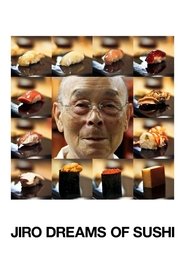I was very excited to see this. Jiro Dreams of Sushi has been on my watchlist for years — since its release — but until very recently, it somehow escaped my memory.
In many ways, the film is a treat. This examination of a shokunin, an artisan dedicated to their craft and in love with its daily mundanities, feels like a glimpse of another nation’s culture. In that sense, it is stimulating and fascinating.
It’s also a portrayal of a man who has pursued perfection all his life. A man who demands perfection from himself, and from others. A man struggling with his mortality, and the fact that his body is imperfect. His attempts to make the world’s most perfect sushi are result of his flawed personality.
Jiro is fascinating, because he’s a walking oxymoron. An imperfect man making perfect food, or trying to. He’s what many of us want to be.
But look at the sacrifices made to get there.
There is a joy in the life of a shokunin, one might think. Every day, they repeat the same tasks in an effort to perfect them. Like Groundhog Day, but with discipline. It’s a monastic lifestyle, and it feels like there may be some peace in it.
But there is no real peace to be found here.
As a film, Jiro is too long. It suffers from repetition and it runs out of things to say. But I wonder if that’s intentional. Perhaps, in witnessing the repetition of the shokunin‘s life style, we are meant to better understand and empathize with it. Maybe our takeaway is meant to be that this life is hard. It isn’t for the faint of heart.
And look at all the sacrifice Jiro and his sons have made.
(For clarity’s sake: this was not an incredibly well made film. Its structure and pacing were off, or rather, flat. It belongs on television, not in cinemas. But I enjoyed it immensely.)
